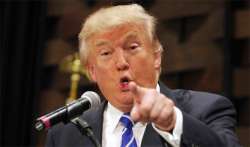The US President Donald Trump will direct the trade representative (USTR) to determine whether to investigate China's trade practices.
This has triggered concerns that Washington may take unilateral moves harming China-US trade and economic ties, Xinhua reported on Saturday.
The USTR Robert Lighthizer would consider whether to probe China's trade practices under Section 301 of the Trade Act, senior administration officials said, but they declined to say when the USTR's decision would be made.
If Lighthizer decides to go ahead with an investigation, the US would first consult with China and the investigation process could take as long as a year, officials said.
The Section 301, which was passed in 1974 and heavily used in 1980s and early 1990s, would allow the US president to unilaterally impose tariffs or other trade restrictions against foreign countries.
But the US has rarely used that obsolete trade law since the World Trade Organisation (WTO) came into effect in 1995.
Michael Froman, former USTR under the Obama administration, has also warned that the US could face retaliation if the country moves away from resolving trade disputes through the WTO and instead starts taking unilateral actions.
"It will just lead other countries to retaliate against us or perhaps even worse, imitate us, and take action on their own without regard to international obligations," he said.
The Chinese Ministry of Commerce has stressed the importance of China-US trade ties and urged the US authorities to abide by WTO rules in its trade measures.
"Any trade measures to be taken by WTO members must conform to WTO rules," Gao Feng, spokesman of Chinese Ministry of Commerce, said earlier this month.
Gao noted that China and the US will push forward the bilateral trade and economic relation in the basic principle of win-win cooperation and resolve differences "through dialogues and consultations."
Latest World News

